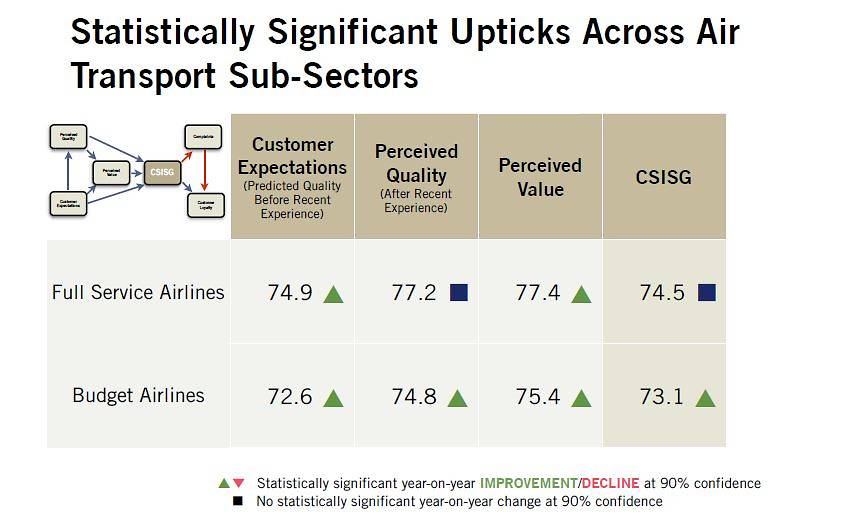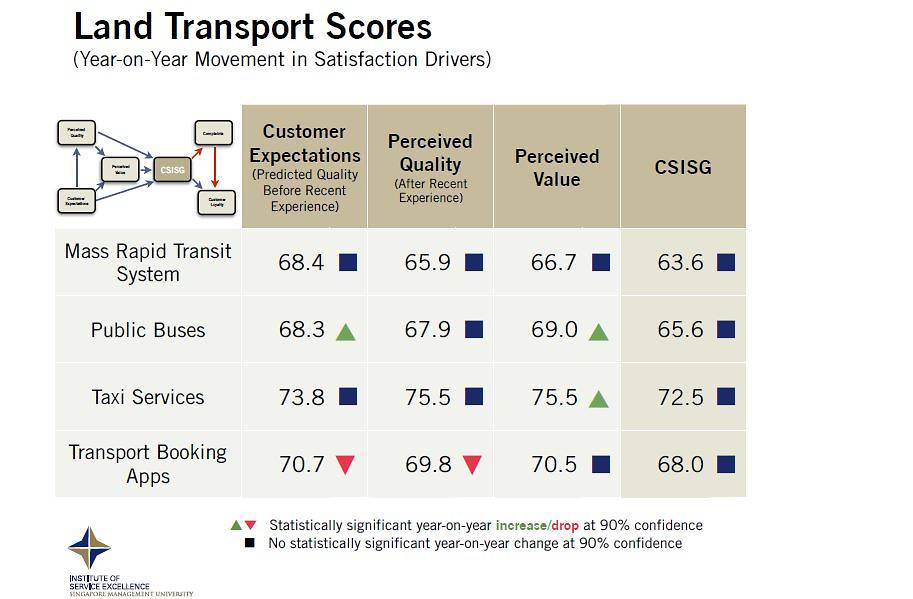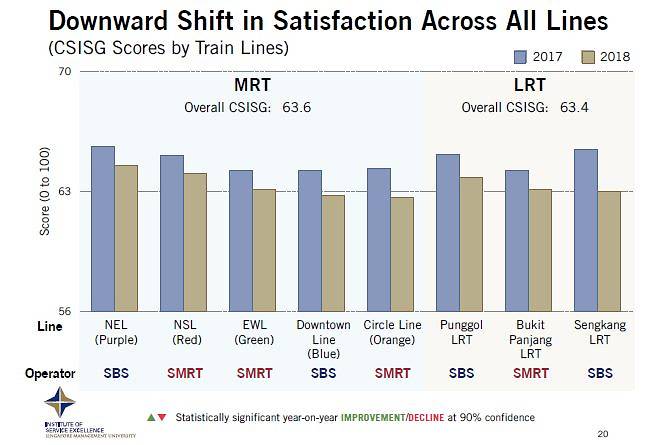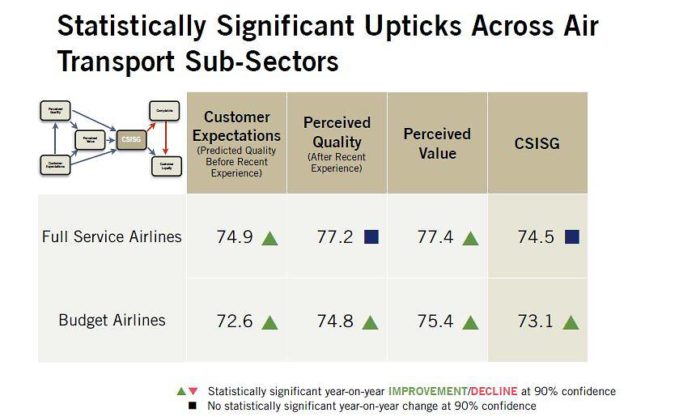SINGAPORE: Customer satisfaction with budget airlines is catching up with full-service airlines, a survey released on Wednesday (Sep 26) by Singapore Management University (SMU) showed.
On the whole, the air transport sector scored 75.4 points on a 0 to 100 scale, a 1.4 per cent improvement over last year, according to the Customer Satisfaction Index of Singapore for the second quarter of 2018, a survey conducted by SMU’s Institute of Service Excellence (ISE).
The study also assessed customer satisfaction for the land transport sector, which scored 67.8 points, unchanged from the previous year.
READ: Singapore’s public transport system among best in the world: McKinsey report
In the last quarter, scores for budget airlines improved to 73.1 points, a 2.7 per cent increase year-on-year.
This is the subsector’s third consecutive annual increase in customer satisfaction, SMU said.
Meanwhile, full-service airlines have seen more modest improvements in scores, leading to a narrowing in the difference in satisfaction levels. This year, full-service airlines scored 74.5 points, similar to last year.
In 2014, the difference was 7.2 per cent. This year, the difference has shrunk to 1.9 per cent, SMU said.

Source: Institute of Service Excellence, Singapore Management University
“The performance metrics of budget airlines have been converging on full-service airlines for a few years now,” said Ms Neeta Lachmandas, executive director of ISE.
“This suggests (that) budget airlines, beyond using price as a lever, have been successful in shaping what travellers deem to be a high-quality mode for air travel.”
The survey also measured satisfaction with Changi Airport which went up slightly to 78 points.
LAND TRANSPORT

Customer satisfaction with public buses (65.6) and taxi services (72.5) saw a mild increase from last year, while satisfaction with MRT train services dipped to 63.6 points.
Customers were also less satisfied with transport booking apps which recorded a lower score year-on-year, at 68 points.
“However, these changes were not statistically significant,” ISE said.
For transport booking apps, customers registered significantly less satisfaction with the fares charged and the app promotions and discounts, which fell 7.7 per cent and 17.1 per cent, respectively.
READ: Grab to retain existing redemption rates for ride rewards beyond Sep 30
“The consolidation of transport booking apps and the larger private hire car industry over the past year has resulted in a measurable decrease in these two attributes, as well as predicted and perceived quality,” commented Mr Chen Yongchang, head of research and consulting at ISE.
This is the first time since CSISG tracking began in 2007 that customer satisfaction with public buses outperformed the MRT system with statistical significance, it added.

“The significant investments into the public bus system, such as the Bus Service Enhancement Programme, have seen the sub-sector record four consecutive years of improvement,” said Ms Lachmandas.
ISE said in its analysis that satisfaction, user trust, and confidence with the public transport operators were closely linked to commuters’ satisfaction with government intervention in these public transport systems.
READ: Taxi ridership down 18%, but commuters’ satisfaction up
Mr Chen said: “Improvement in several customer satisfaction metrics for our public bus and MRT systems seem to be tied to public perceptions of government intervention.
“Therefore, to most efficiently move the needle, our public transport operators should consider working closely with government regulators.”
A total of 6,249 respondents, comprising of 3,539 locals and 2,710 tourists, were surveyed between April and July for the study.





